Thailand protests: Riot police fire water cannon as protesters defy rally ban
- Published
Protesters in Thailand shield themselves as riot police try to disperse crowds
Thousands of Thais have rallied in Bangkok for the second day to demand political reforms, defying an emergency decree banning such gatherings.
Police used water cannon to disperse the mostly young activists, who tried to push back with umbrellas. A few threw plastic water bottles.
Prime Minister Prayuth Chan-ocha warned a curfew might be imposed, rejecting calls for him to resign.
Protesters are also demanding reforms to Thailand's powerful monarchy.
On Thursday, the government had attempted to curtail the student-led protest movement by issuing the emergency decree, banning gatherings of more than four people and arresting about 20 activists.
'Long live the people': Watch as Thai protest leader is arrested and carried into police car
Several key protest leaders were among those arrested, including human rights lawyer Anon Nampa, student activist Parit Chiwarak - widely known by his nickname "Penguin" - and Panusaya Sithijirawattanakul.
Mass protests began by calling for the resignation of Mr Prayuth - a former army chief who seized power in a 2014 coup and was appointed premier after controversial elections last year.
The rallies have now expanded to demand curbs on the powers of the king.
The calls for royal reforms are particularly sensitive in Thailand, where criticism of the monarchy is punishable by long prison sentences.
What's the latest from Bangkok?
About 2,000 protesters took to the streets in central Bangkok on Friday evening, media reports said.
With hundreds of riot police blocking the site of the previous day's protest, the young activists simply moved their rally several hundred metres down the road.
They carried slogans that read "Release our friends", referring to the more than 40 people arrested this week.
The crowd quickly grew, from a few dozen, to thousands, swollen by commuters stopping to join what has now become a national mood of rebellion on their way home, the BBC's Jonathan Head in Bangkok reports. A chorus of expletives was heard, aimed at the prime minister.
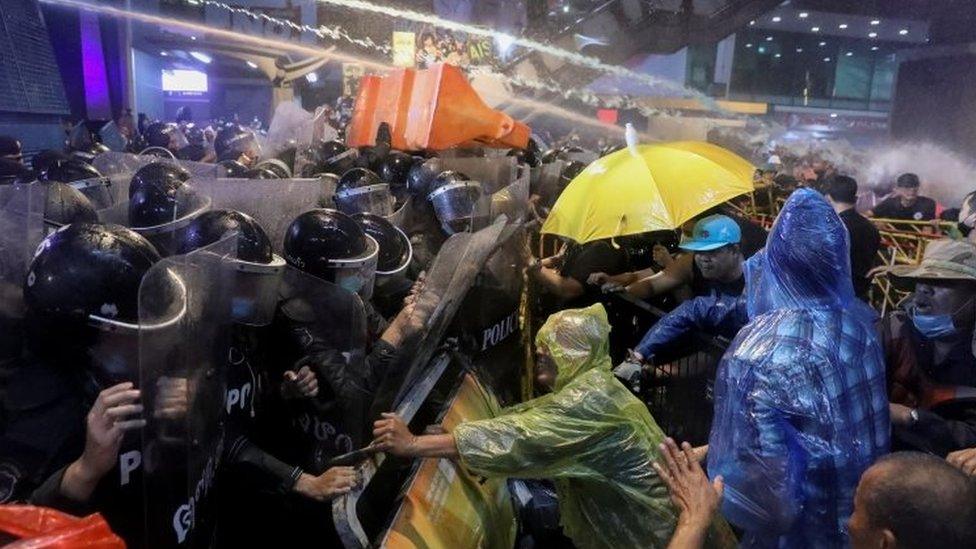
Clashes continued late into the night in Bangkok
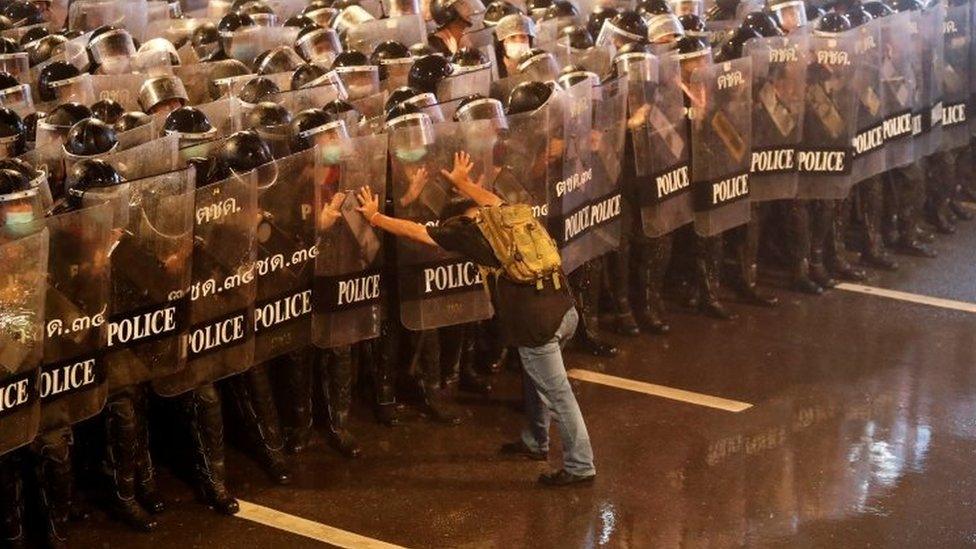
Protesters said they were fighting for their future
As the police started advancing to try to disperse the crowds, demonstrators chanted "Get out, get out!"
Water cannon was later used, with some protesters saying the jets of water contained a chemical that made their eyes sting - a claim that has not been independently verified.
"I have to fight for my future," one 22-year-old protester was quoted as saying by Reuters.
Most of protesters later dispersed. A few tried resisting, and were arrested.
Protest organiser then asked the crowds to go home and prepare for another mass rally on Saturday.
Police spokesman Yingyot Thepchamnong warned that the authorities had already "issued warnings against illegal acts".
"After this there will be intensive measures in enforcing the law," he added.
How did the protest movement begin?
Thailand has a long history of political unrest and protest but a new wave began in February after a popular opposition political party was ordered to dissolve.
The order followed elections in March last year - the first since the military seized power in 2014 and the first chance to vote for many young people and first-time voters. The elections were seen as an opportunity for change after years of military rule.
Prayuth Chan-ocha, who had the all-important support of the military, was re-installed as prime minister. The pro-democracy Future Forward Party (FFP), with its charismatic leader Thanathorn Juangroongruangkit, garnered the third-largest share of seats and was particularly popular with young, first-time voters.
But in February a court ruled the FFP had received a loan from Mr Thanathorn which was deemed a donation - making it illegal - and the party was forced to disband, prompting thousands of young Thais to join street protests.
The protests were halted by Covid-19 restrictions, which banned gatherings, but they began again in June when a prominent pro-democracy activist went missing.
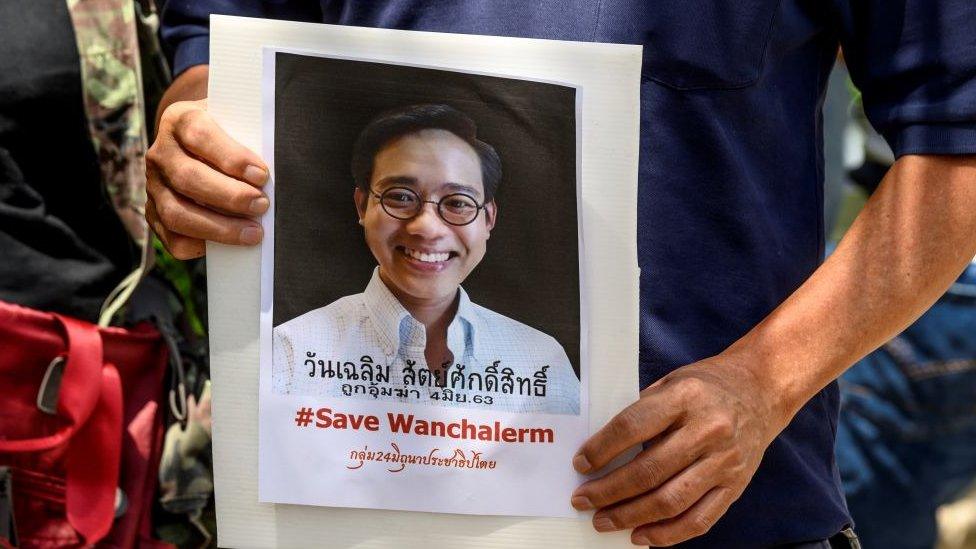
Pro-democracy activist Wanchalearm Satsaksit was reportedly snatched off the street in Cambodia
Wanchalearm Satsaksit, who had been living in Cambodia in exile since 2014, was reportedly grabbed off the street and bundled off into a vehicle. Protesters accused the Thai state of orchestrating his kidnapping - a charge police and government officials have denied.
In recent months, the protesters have challenged the king's decision to declare Crown wealth as his personal property, which made him by far the wealthiest person in Thailand. It had until now been notionally held in trust for the benefit of the people.
There have also been questions over the king's decision to take personal command of all military units based in Bangkok - a concentration of military power in royal hands unprecedented in modern Thailand.
- Published16 October 2020
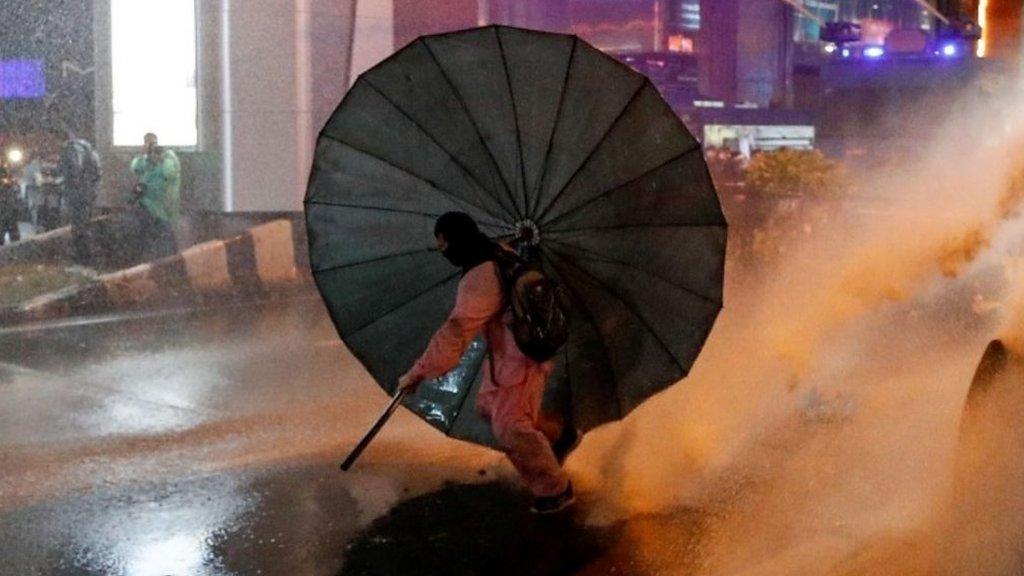
- Published15 October 2020
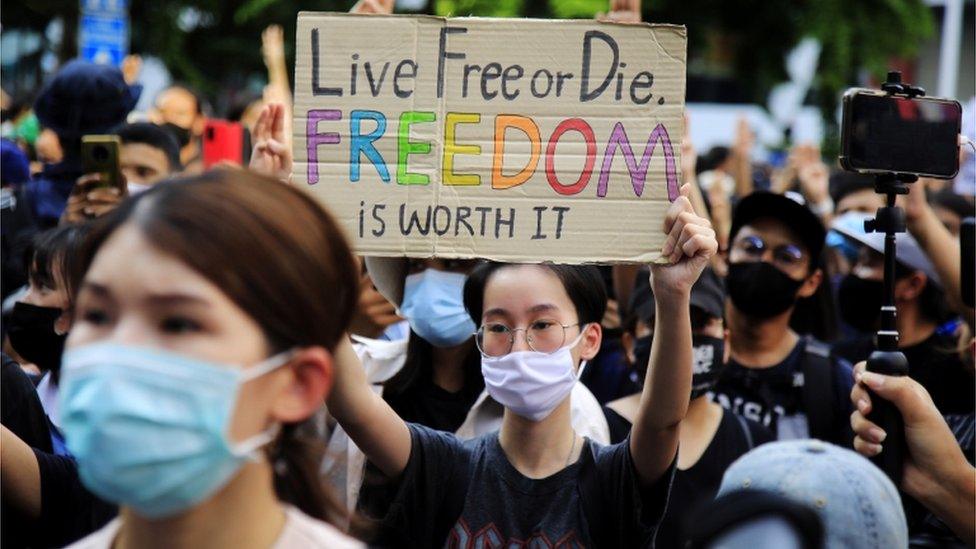
- Published17 September 2020
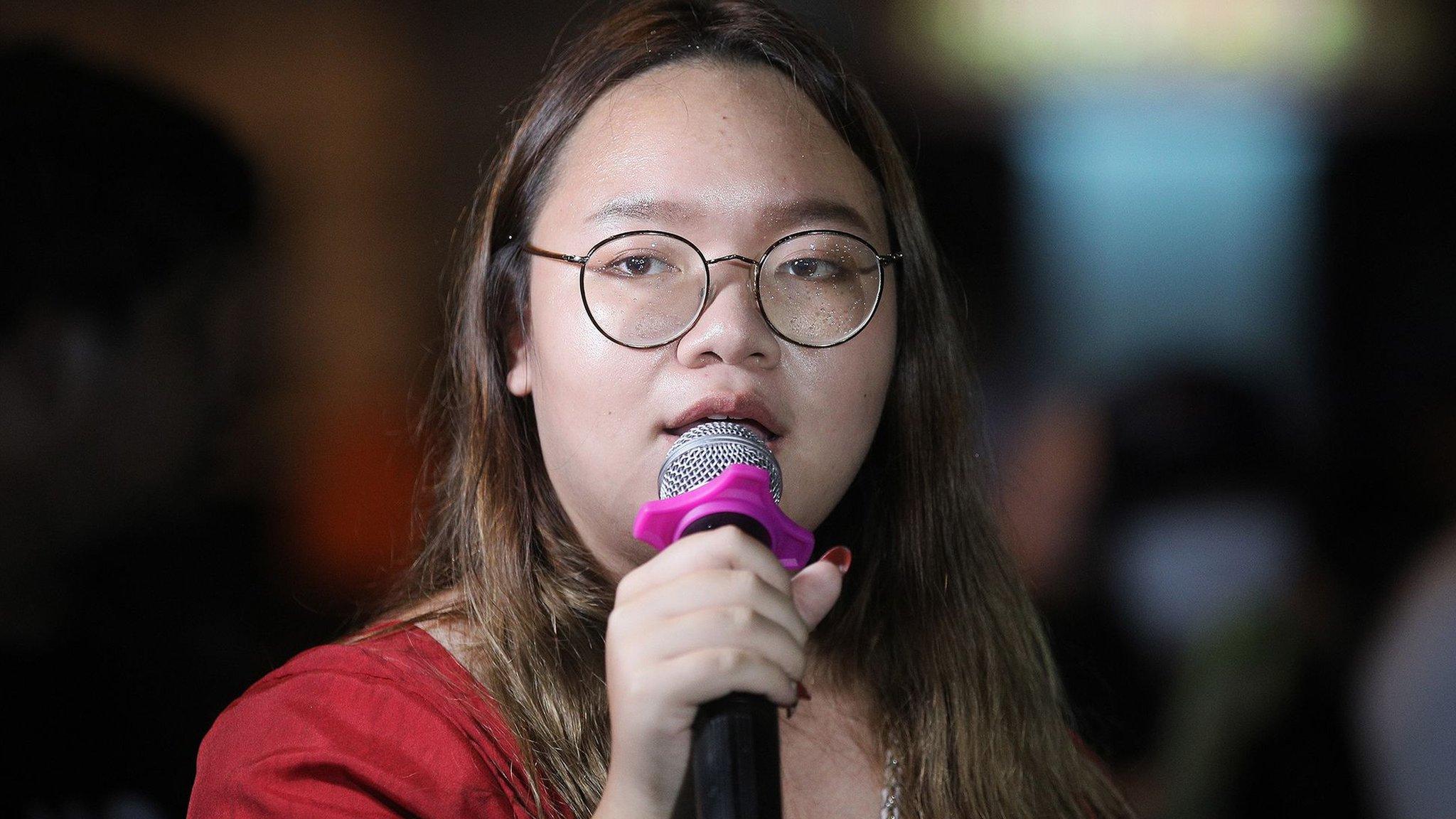
- Published1 August 2020
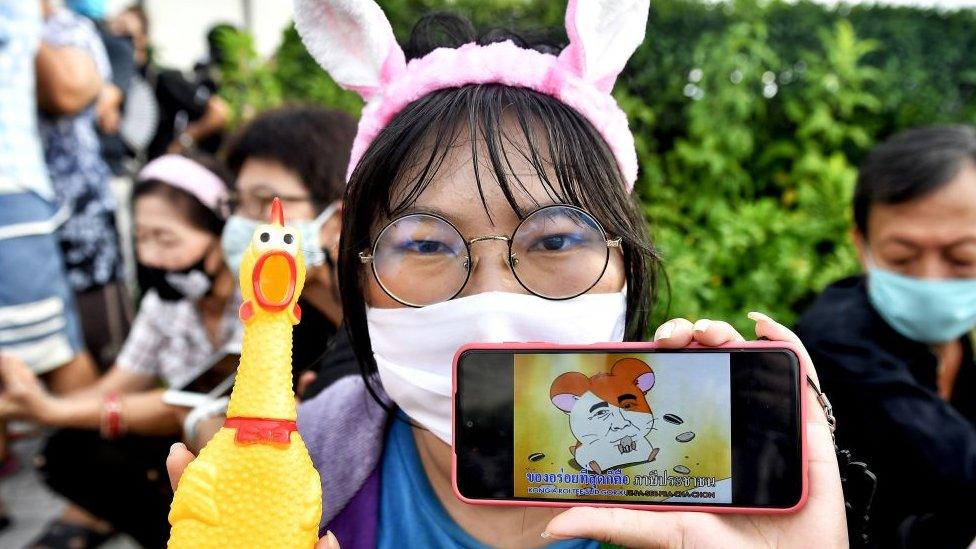
- Published2 July 2020
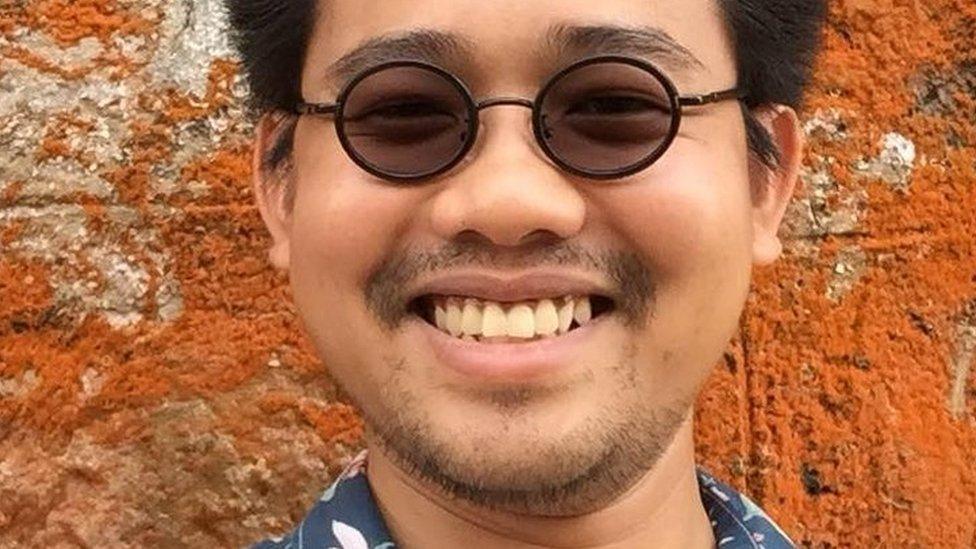
- Published6 October 2017
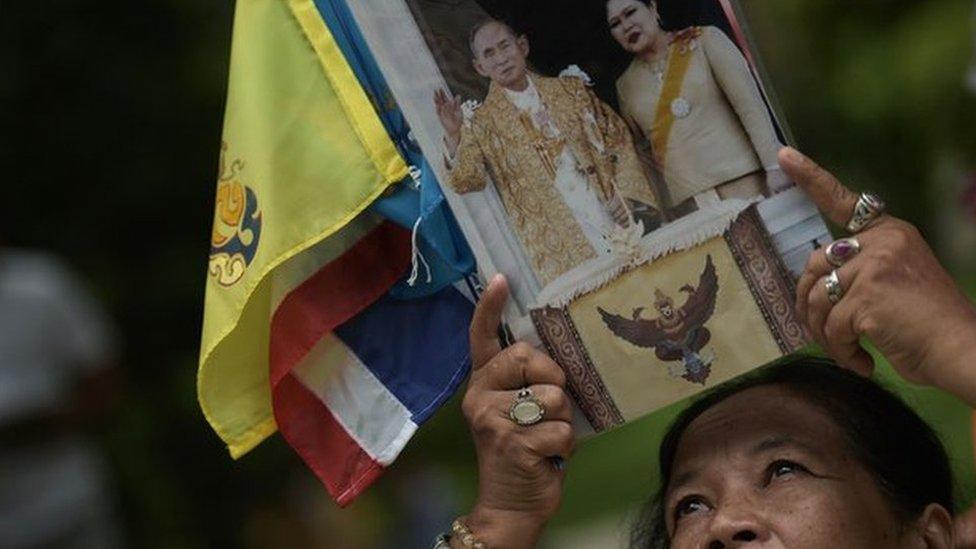
- Published14 August 2020
